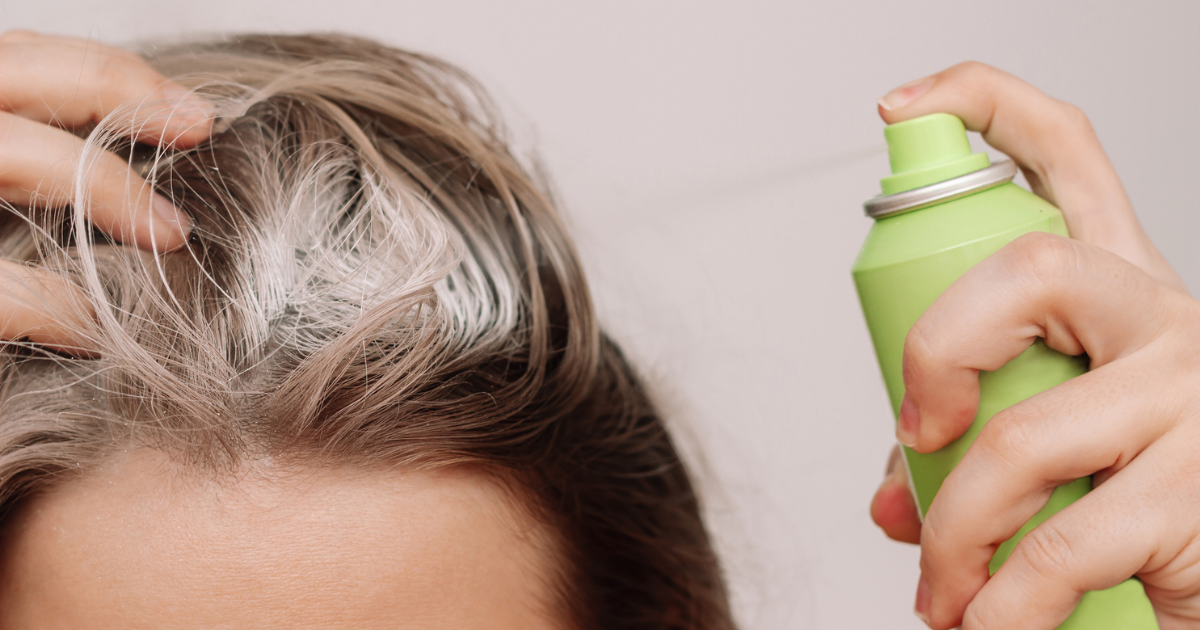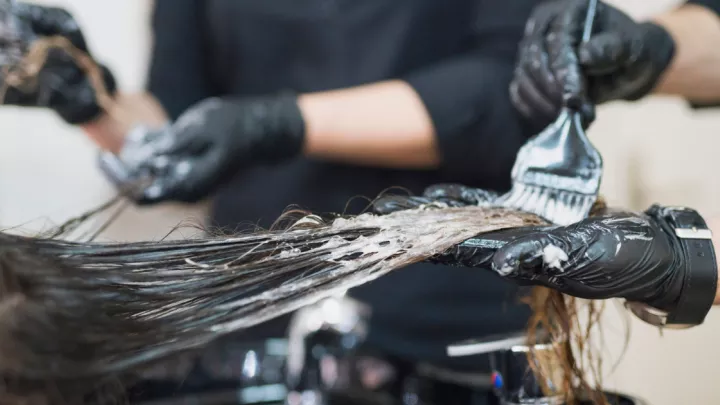Is dry shampoo safe?

Dry shampoo can be a convenient way to freshen your hair between washes, but is it healthy? The short answer is that when used occasionally, dry shampoo is generally safe. Still, it’s not intended to replace traditional hair washing, as prolonged use can cause irritation, and some products may contain ingredients that could impact your health. Read on to learn more from Calla Sullivan, University of Nebraska Medical Center second-year student.
Dry shampoo vs. traditional cleansing shampoo
Unlike traditional shampoos, dry shampoo is intended to be applied to hair without soap or water. As you work the powder into your scalp, it absorbs excess oil and sweat on your hair. Once dry, the powder can be brushed out, producing fresher and cleaner looking hair. Regardless, dry shampoo cannot fully replace the cleansing function of traditional shampoo in your routine.
How dry shampoo affects the hair and scalp
Although dry shampoo does not directly cause hair loss, using dry shampoo too often or for extended periods can cause scalp problems, such as:
Irritation – Overuse can cause dry shampoo to accumulate on your hair follicles and clog pores, which can cause irritation and inflammation that may accelerate hair shedding.
- Dandruff and scaly skin – Because dead skin cells, oils and microorganisms are not removed from the scalp as frequently, this buildup may lead to dandruff or a scaly rash.
Questionable ingredients in spray dry shampoo
Dry shampoos often contain fragrances, preservatives, and surfactants that can cause allergic reactions, including contact dermatitis – an itchy rash caused by direct contact with a substance.
Additionally, concern has been raised over the presence of benzene, a carcinogen, in spray dry shampoos, including a voluntary FDA recall on several products and a class action lawsuit for one brand. Benzene is a naturally occurring chemical that can be harmful to humans. Experts say we’re exposed to benzene every day in the air we breathe, especially when we fill our vehicles at the gas station. Benzene is also used in certain detergents, glues and paints. Nevertheless, it’s best to avoid personal care products that potentially contain high levels of benzene.
Ultimately, if dry shampoo fits your lifestyle, make sure to apply it sparingly, choose trustworthy brands and maintain regular washes with traditional shampoo. Consult your dermatologist if you experience any irritation, hair loss or other complications.







